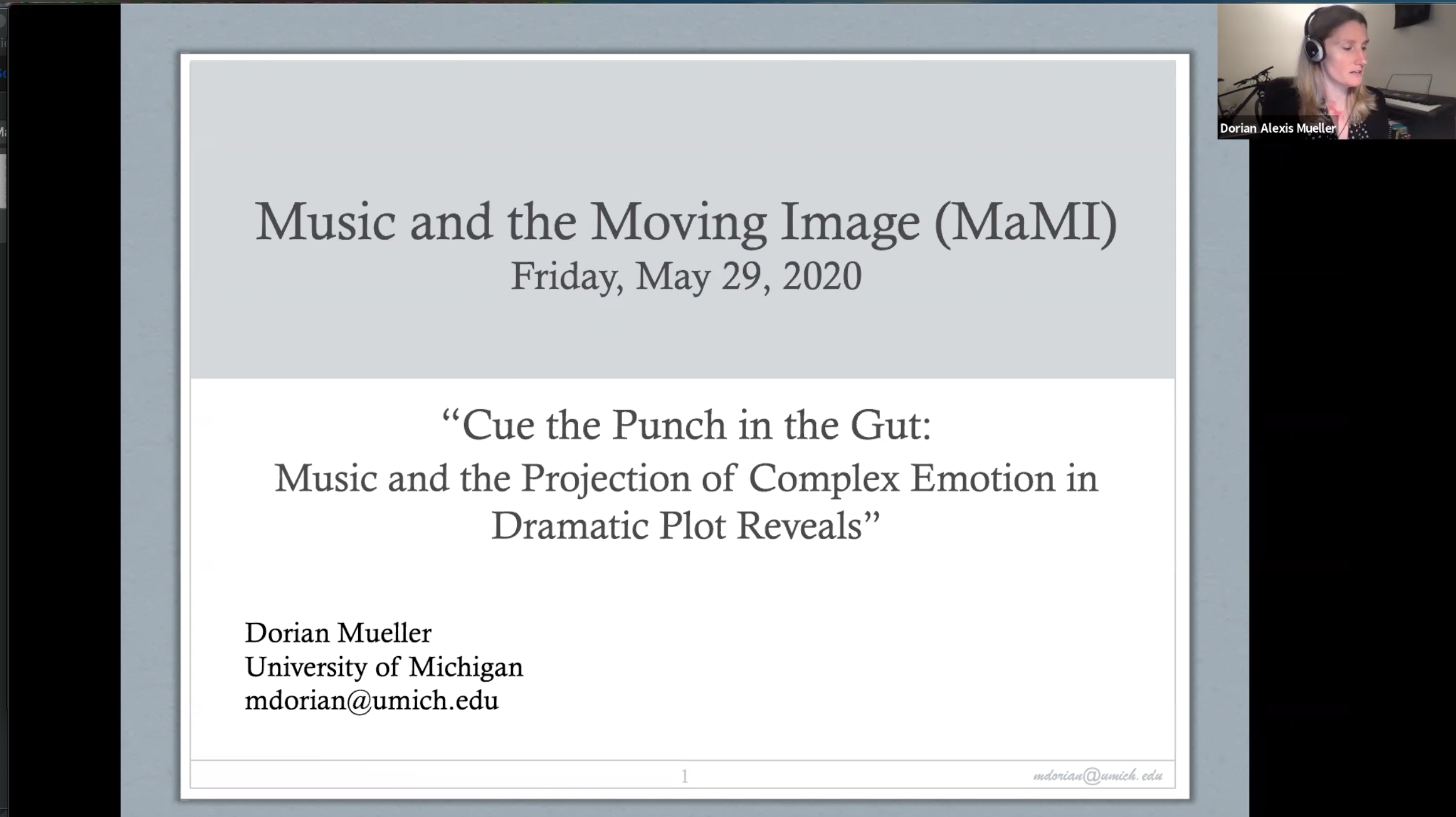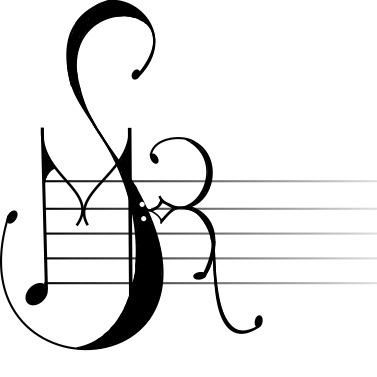
At the end of May, I presented a paper, entitled “Cue the Punch in the Gut: Music and the Projection of Complex Emotion in Film,” at the 16th annual Music and the Moving Image (MaMI) conference, which was held virtually this year (see abstract below). While there’s no replacement for attending the conference in person at the NYU Steinhardt School in lower Manhattan, the virtual conference ran smoothly, thanks to a super tech team. There were even some advantages to attending the conference online: being able to quickly switch between panels, avoiding a costly commute, plus the Zoom “coffee room” break-out chats worked surprisingly well. I was introduced to several speakers; somehow the video interface made interactions a bit less intimidating. I also got to briefly catch up with a UM alumna, Jessica Getman, who gave a paper on “Power, Nostalgia, and the TV Musical in The Musicians (2015–).”
—Dorian Mueller
Abstract:
Music in the context of narrative media has the unique capacity to grant us access to complex emotional and psychological states of characters that often visual or textual cues alone cannot convey. I argue that musical projections of emotion can be especially salient when aligned with dramatic plot reveals, in that they enhance the observer’s ability to experience a similar emotion alongside the character. In this paper, I uncover music’s role in conveying complex emotions in pivotal plot moments from two dramatic television series: Charlie Brooker’s Black Mirror (2011) and Veena Sud’s The Killing (2011-2014). In each, I demonstrate how the music effectively conveys a particular emotion experienced by a character, while simultaneously instills in the observer a parallel experience of that emotion at a higher narrative level.
In “Shut Up and Dance” (Black Mirror, season 4) I contend that the alignment of visual cues to the climactic build of Radiohead’s “Exit Music (For a Film)” (OK Computer 1997) enhances our perception of the guilt and shame felt by the main character, brought to a heightened intensity at the moment an incriminating secret about him is revealed. By comparison, I turn to “What I Know” (The Killing, season 2), where I examine how non-diegetic music undercuts the visual and textual portrayal of guilt and anger. Here I explore how the development of the piano theme from Frans Bak’s score parallels the lead-up to discovering the identity of a young women’s killer, while also conveys the solace this discovery brings about for the victim’s grieving mother.
Recent Posts
SMR to Host Midwest Graduate Music Consortium 2025 Conference – January 13, 2025
SMR Welcome BBQ at County Farm Park – October 01, 2024
Julian Grey defends dissertation – June 05, 2024
Michaela Franzen defends dissertation – May 21, 2024
Kai West defends dissertation – May 16, 2024
Micah Mooney and Carlos Pérez Tabares present at Music Theory Midwest – May 12, 2024
SMR end-of-year round-up at County Farm Park – April 25, 2024
SMR hosts Research Showcase – September 29, 2023
 Society for Music Research
Society for Music Research